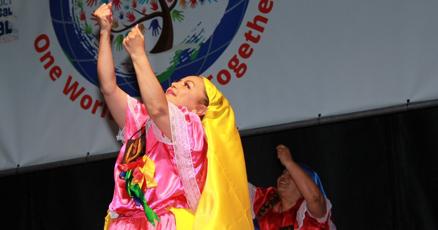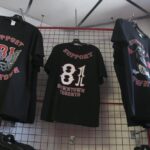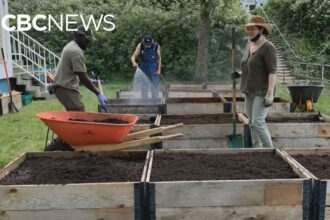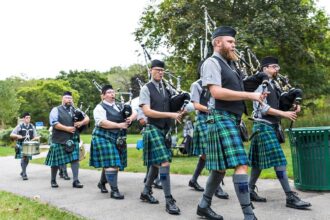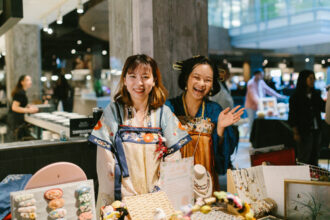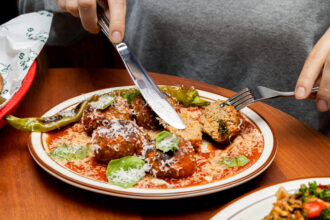The sun blazed over Riverside Park last weekend as thousands of Guelph residents and visitors alike navigated a sensory labyrinth of spices, rhythms, and vibrant textiles. The annual Guelph District Multicultural Festival transformed the park into a global village where cultural barriers dissolved with each shared smile, dance move, and forkful of international cuisine. In its 37th year, the festival continues to be not just a celebration, but a vital community institution that both reflects and shapes our evolving understanding of Canadian identity.
“We’re not just showcasing cultures—we’re building bridges,” explained Dina Mcgillic, the festival’s coordinator, as she navigated through crowds wearing everything from ornate saris to Scottish kilts. “In today’s world, these connections matter more than ever.”
The festival’s significance extends far beyond mere entertainment. In an era where polarization dominates headlines and social media algorithms push us into isolated bubbles, spaces that encourage genuine cultural exchange have become increasingly rare. Yet here in Guelph, over 25 different cultural groups came together not to tolerate one another, but to actively celebrate their differences while discovering their common humanity.
At the Portuguese pavilion, Maria Fernandes served up traditional pastéis de nata while explaining to curious visitors how her grandmother’s recipes traveled across the Atlantic with her family three decades ago. “Food tells our story,” she said, watching as a young couple tried the custard tarts for the first time. “When you eat my food, you understand a little bit of my history.”
This sentiment was echoed throughout the festival grounds. The Ethiopian coffee ceremony drew crowds who participated in a ritual that dates back centuries. Meanwhile, the Bangladeshi dance troupe’s performance featured both traditional choreography and contemporary elements that reflected their dual cultural identities.
What makes the Guelph Multicultural Festival particularly powerful is its grassroots nature. Unlike corporate-sponsored diversity initiatives that can sometimes feel performative, this festival emerges organically from the community it serves. The volunteers staffing each booth aren’t professional cultural ambassadors—they’re your neighbors, colleagues, and fellow Guelph residents sharing deeply personal aspects of their heritage.
“I’ve lived in Guelph for 22 years,” said Wei Chen, who demonstrated calligraphy at the Chinese cultural booth. “But this is the one weekend where I feel most seen by my community. People ask questions about my culture with genuine interest, not just politeness.”
The festival also serves as a critical introduction to diversity for younger generations. Children darted between cultural pavilions with “passport” booklets, collecting stamps and completing activities at each stop. This playful approach to cultural education plants seeds of curiosity and respect that will shape their worldview long after the festival ends.
Perhaps most remarkable was the festival’s ability to transform potentially divisive differences into sources of celebration. In a political climate where immigration and multiculturalism can be contentious topics, the festival offered a powerful counternarrative—one where diversity is not a challenge to overcome but a strength to embrace.
Local politicians who attended wisely kept their remarks focused on community rather than campaign points. Mayor Cam Guthrie noted that “Guelph’s identity is inseparable from its multicultural character,” a statement that resonated regardless of political affiliation.
The economic impact shouldn’t be overlooked either. Local businesses reported significant upticks in traffic, and several cultural groups used the festival as a fundraising opportunity for community initiatives. The festival demonstrates how cultural celebration can also drive economic vitality—a lesson increasingly backed by research on diverse cities and their economic resilience.
As the festival concluded with a multilingual rendition of “O Canada” that incorporated verses in Indigenous languages, French, and several others, the statement was clear: Canadian identity isn’t diminished by diversity—it’s defined by it.
While the tents have been packed away and Riverside Park returns to its everyday state, the connections formed during the festival continue to reverberate throughout the community. In an age where meaningful face-to-face interaction is increasingly rare, the Guelph Multicultural Festival offers something profoundly necessary—a reminder that culture isn’t static but constantly evolving through our interactions with one another.
As we navigate increasingly complex global challenges, perhaps there’s wisdom to be found in Guelph’s approach to multiculturalism: not as an abstract concept, but as a lived experience shared through food, music, art, and conversation. In the opinions of many attendees, that experience is worth celebrating not just for one weekend, but year-round.
When next June rolls around, Guelph will again transform into this vibrant mosaic. The only question is: will more Canadian communities follow their lead?

